The agricultural services department receives direction from the Agricultural Service Board (ASB). This department is responsible for administering and developing programs to compliment the following acts:
- Agricultural Service Board Act
- Weed Control Act
- Agricultural Pests Act
- Soil Conservation Act
- Animal Health Act
Here are some notable regulations:
They are also responsible for assisting local producers in completing Environmental Farm Plans, the application process for Canadian Agriculture Partnership programs, and promoting education and awareness of agricultural programs and services.
Webinars/workshops
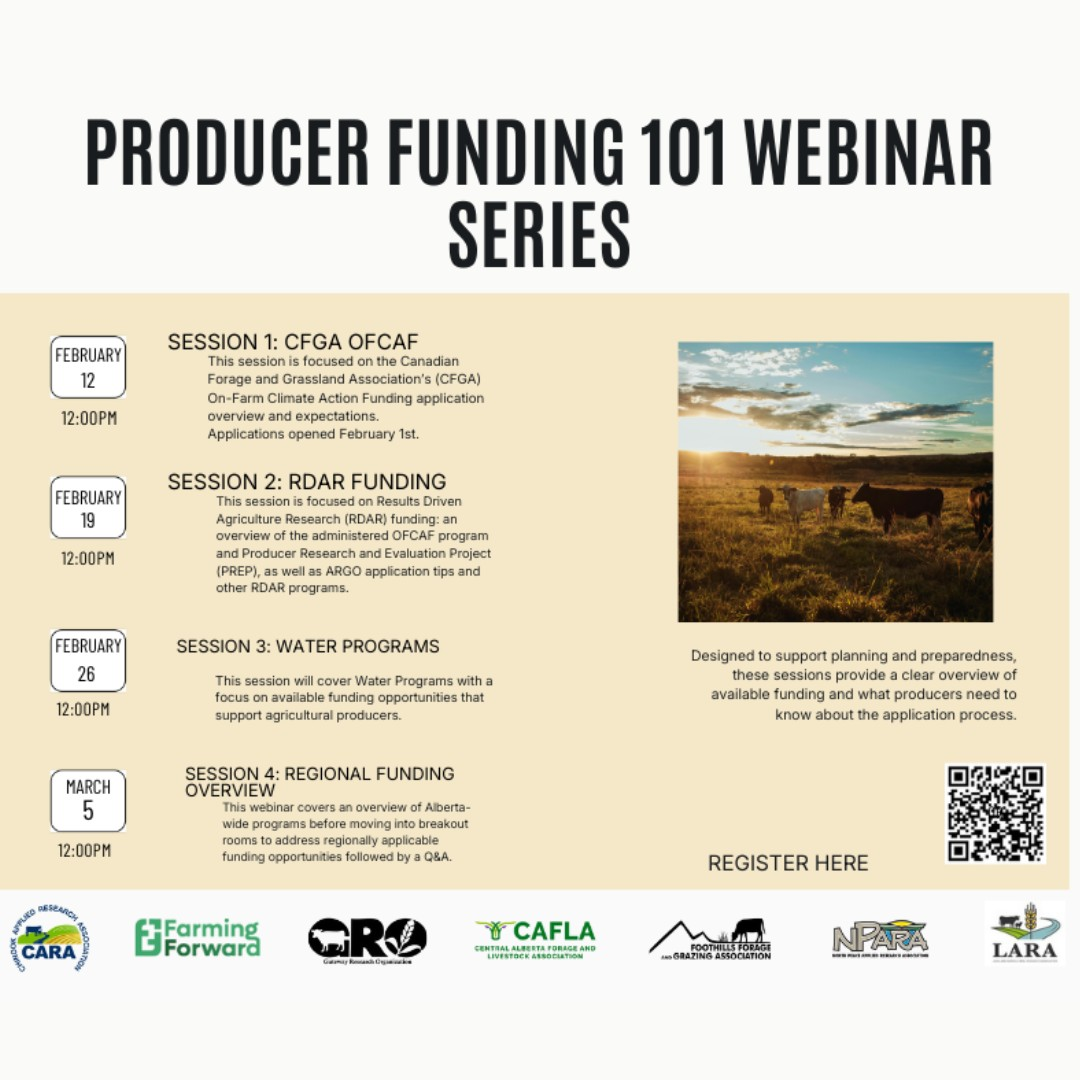
Environmental Farm Plan Virtual Workshops (Feb. 11, 24)

Working Well Workshops (Feb. 18, 25, March 4)
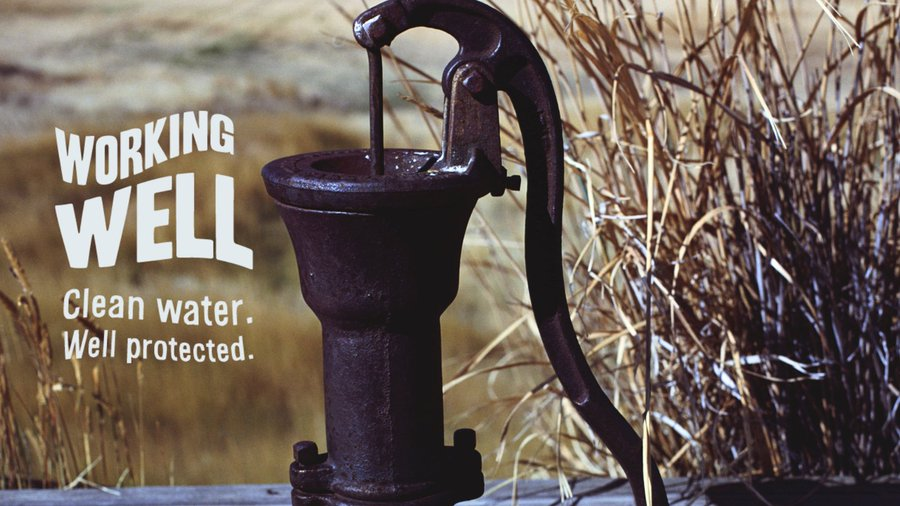
Farmer Pesticide Course (Jan. 7, Feb. 4, March 4, April 1)
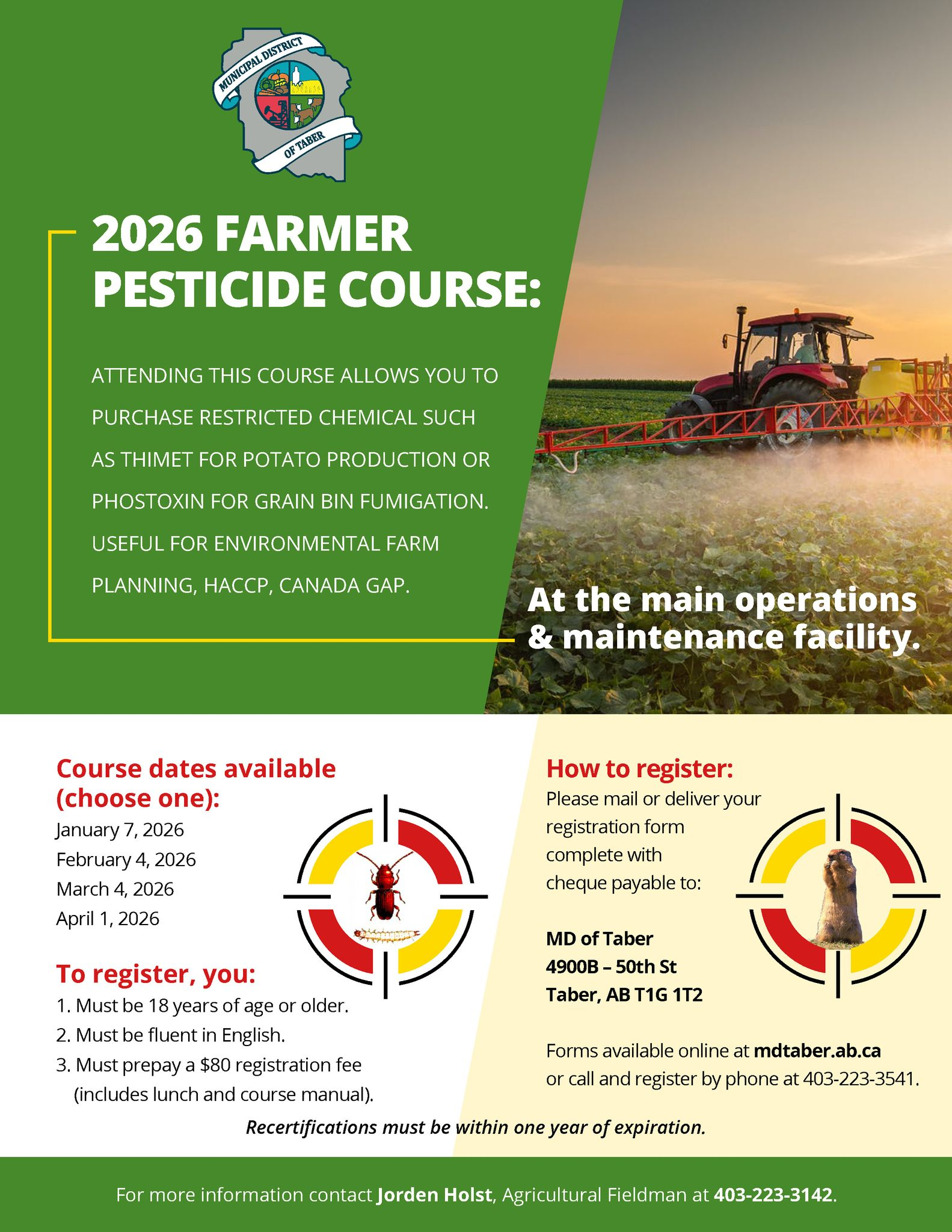
Tree health
Anyone planting trees are responsible for ensuring that they are in compliance with relevant bylaws and policies. See our land use bylaw for more information.
Animal health
Equine Herpes Virus
Nov. 26: There is an ongoing Equine Herpes Virus (EHV-1) disease outbreak in the US and recent detection in Alberta.
Attached is a notice from the Chief Provincial Veterinarian, which provides further information on EHV-1 as well as links that contain further information as well as tools, including biosecurity measures, to help prevent introduction and spread.
If you have any questions regarding the content of this email, please reach out to me and/or directly to the Office of the Chief Provincial Veterinarian (OCPV) accessible through chief.prov.vet@gov.ab.ca or by phone on 780-427-3448.
Avian Flu
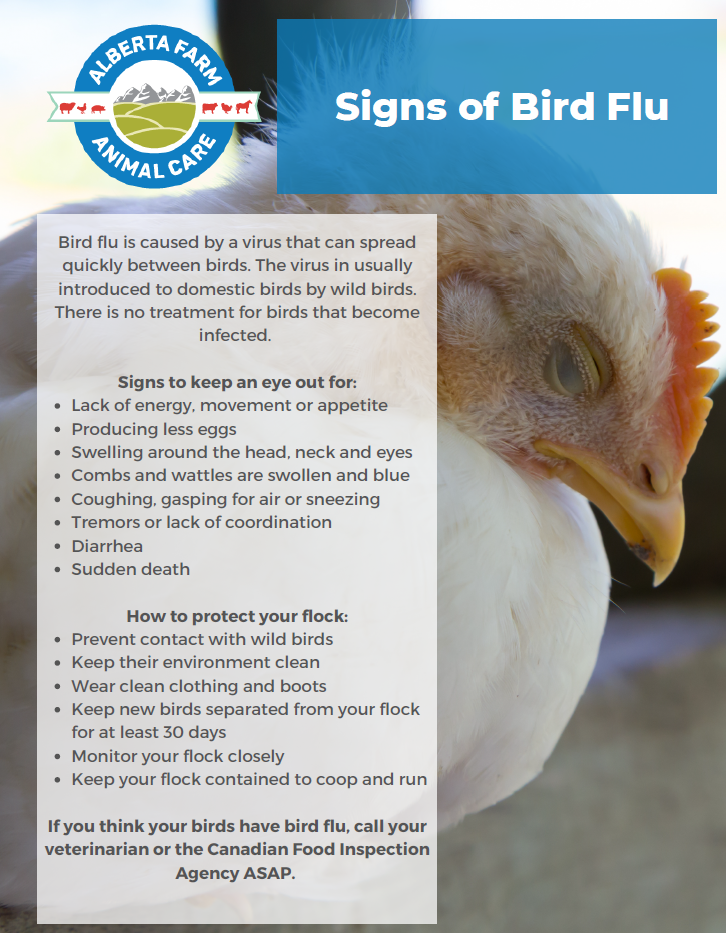 Alberta Agriculture and Irrigation advised that cases of avian influenza were expected in 2023.
Alberta Agriculture and Irrigation advised that cases of avian influenza were expected in 2023.
Please review this letter for more information.
If you suspect your flock may have avian influenza, contact either your flock veterinarian, the Canadian Food Inspection Agency at 403-338-5225, or The Office of the Chief Provincial Veterinarian at 780-427-3448 or 1-800-524-0051.
Disposal of deadstock
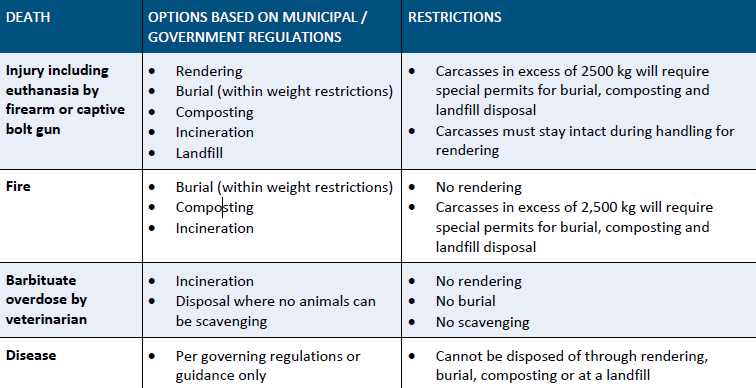 Disposing of dead stock can be quite challenging based on several factors including accessibility to disposal locations, number of animals and climatic conditions.
Disposing of dead stock can be quite challenging based on several factors including accessibility to disposal locations, number of animals and climatic conditions.
The disposal of dead animals in Alberta is regulated under the Animal Health Act - Disposal of Dead Animals
Regulation 132/2014. This regulation is applicable to the disposal of individual animals, diseased animals and disaster or emergency situations.
Acceptable Methods of Dead Stock Disposal
Dead stock can be disposed of pursuant to the government of Alberta and municipal regulations:
• Burial – bury animals per the Animal Health Act - Disposal of Dead Animals Regulation.
• Composting – the biological breakdown of organic materials in an aerobic (presence of oxygen) environment
• Landfills – dead stock can be disposed of at landfills where allowed. Disposal of Dead Animals Regulation still apply.
• Incineration – the destruction of carcasses by burning.
• Scavenging – allow dead stock to be disposed of via scavengers (i.e. coyotes, birds, etc.).
• Rendering – a company that collects dead stock to render them into inedible products or dispose of them. This is a user pay service.
Mental health
Visit agknow.ca, the Alberta Farm Mental Health Network
Grants & Funding Opportunities
AAAF Memorial Bursary
Agricultural Service Board Bursary
- Bursaries are available to students wishing to continue their education at a College or University. Students must be enrolled in an Agricultural related program.
- Two $1,000 bursaries are available in each calendar year. Applications, with all supporting documentation, must be received by the Agricultural Supervisor by Sept. 30 of each year.
- More information and the application form, can be found here.
Resilient Agricultural Landscape Program (RALP)
Sustainable Canadian Agricultural Partnership
Environmental Farm Plan
Environmental Farm Plans and Canadian Agricultural Partnership
Pests
Richardson's Ground Squirrel
Norway Rat
Canola
Blackleg
- https://open.alberta.ca/publications/2306536
- https://open.alberta.ca/publications/making-a-comback-blackleg-on-canola
Clubroot
- https://www.alberta.ca/clubroot-disease-of-canola-and-mustard
- https://www.alberta.ca/alberta-clubroot-management-plan
Sclerotinia
Cereals
Fusarium
- https://www.alberta.ca/fusarium-head-blight-overview
- https://open.alberta.ca/dataset/107529dc-b4fd-4950-9fbf-e963f5af988c/resource/c3ff2518-471d-4709-b753-88efb4d3ae41/download/af-fusarium-head-blight-barley-and-wheat.pdf
Potato
Bacterial Ring Rot
Dutch Elm Disease
Recycling programs
Grain bag recycling
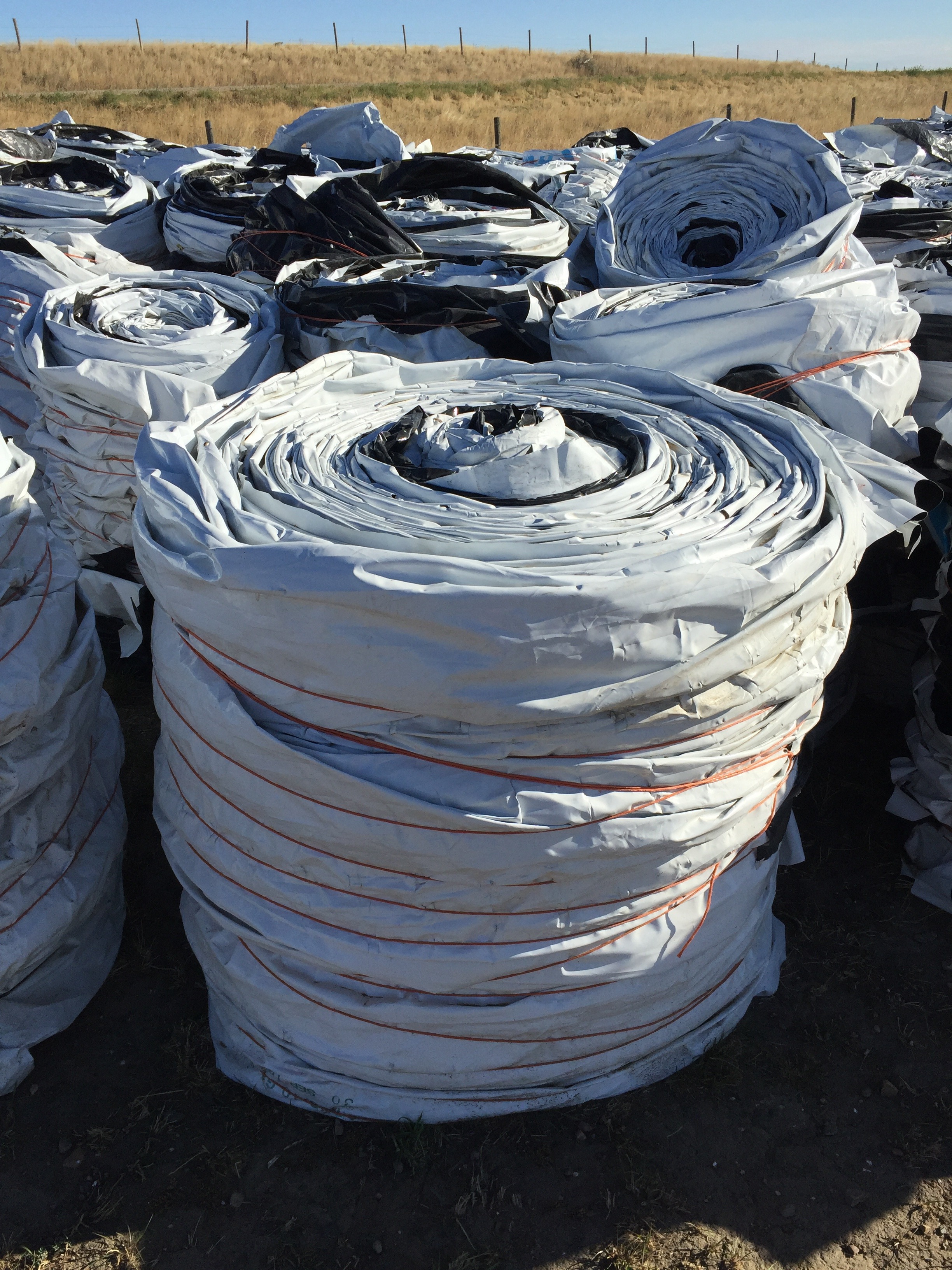
- Producers can contact the county regarding the program for more information.
- Producers are required to clean of any big clumps of grain, dirt, ice etc., prior to rolling their grain bags. The county has a grain bag roller for producers to use.
- Grain bags can then be transported by the producer to the Hilda transfer site to be held for recycling.
Twine recycling
- Pickup twine recycling bags at the county office in Dunmore, or at any of the transfer sites
- Bag twine
- Drop off at a transfer site

Chemical jug collection
- Find a collection site near you (see map)
- All jugs must be bagged and returned to ag retailers or the Schuler Transfer Site. The site on Range Road 63 is closed. Bags are available at ag retailers, the county office, and Schuler transfer site.
Rental Equipment
15 Foot Land Roller (can be filled with water) | 20 Foot Land Roller with Levelling Blade (can be filled with water) |
Two x 14 foot Haybuster No-Till See Drills | Cattle Scale |
Exit Applicator | Magpie Trap |
RFID Tag Reader | Shelterbelt Mulch Applicator |
Skunk and Raccoon Traps | Pasture Pipeline Plow |
Tree planters | Grain bag roller |
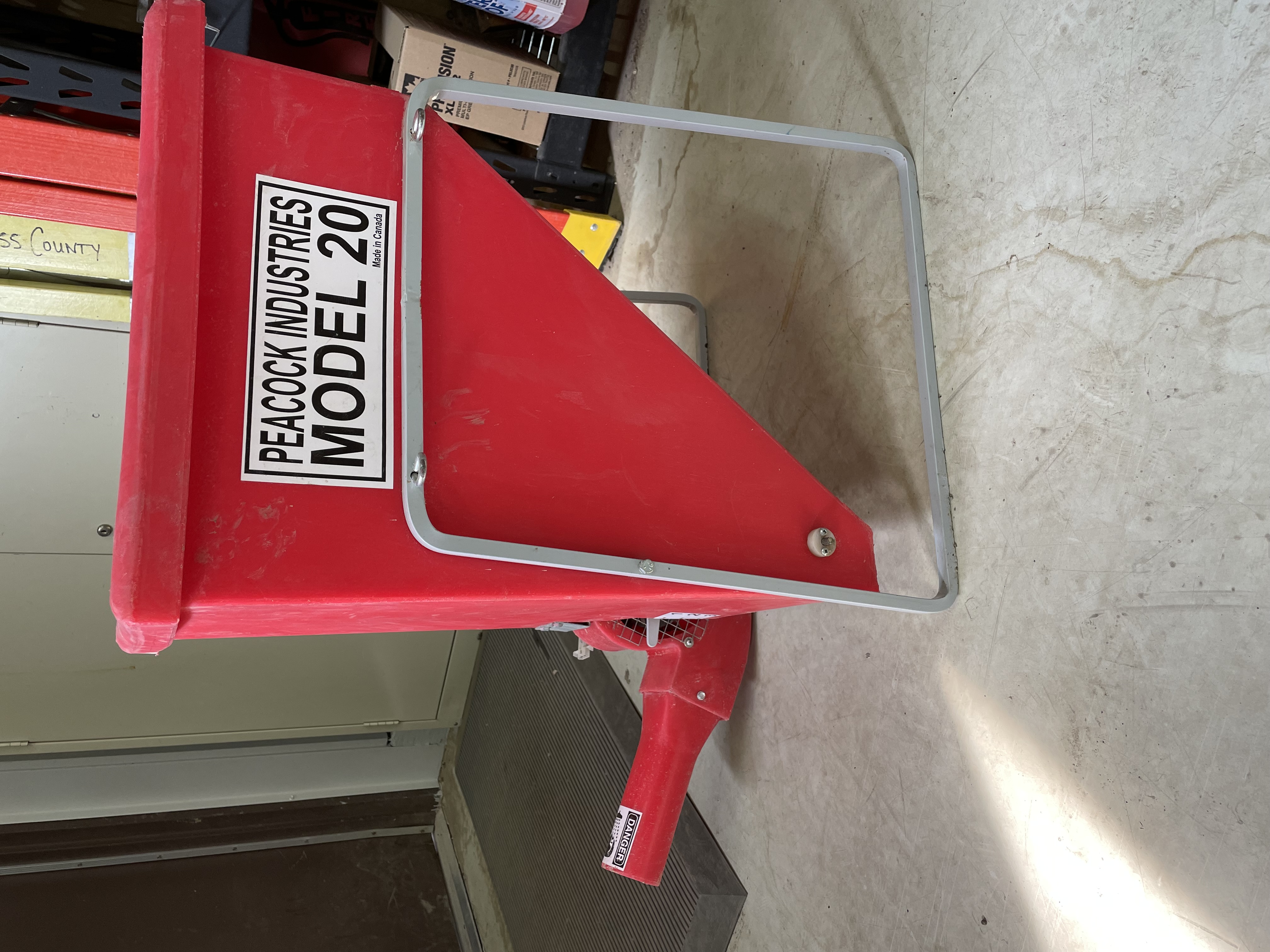 Bran bait applicator (for grasshopper control) |
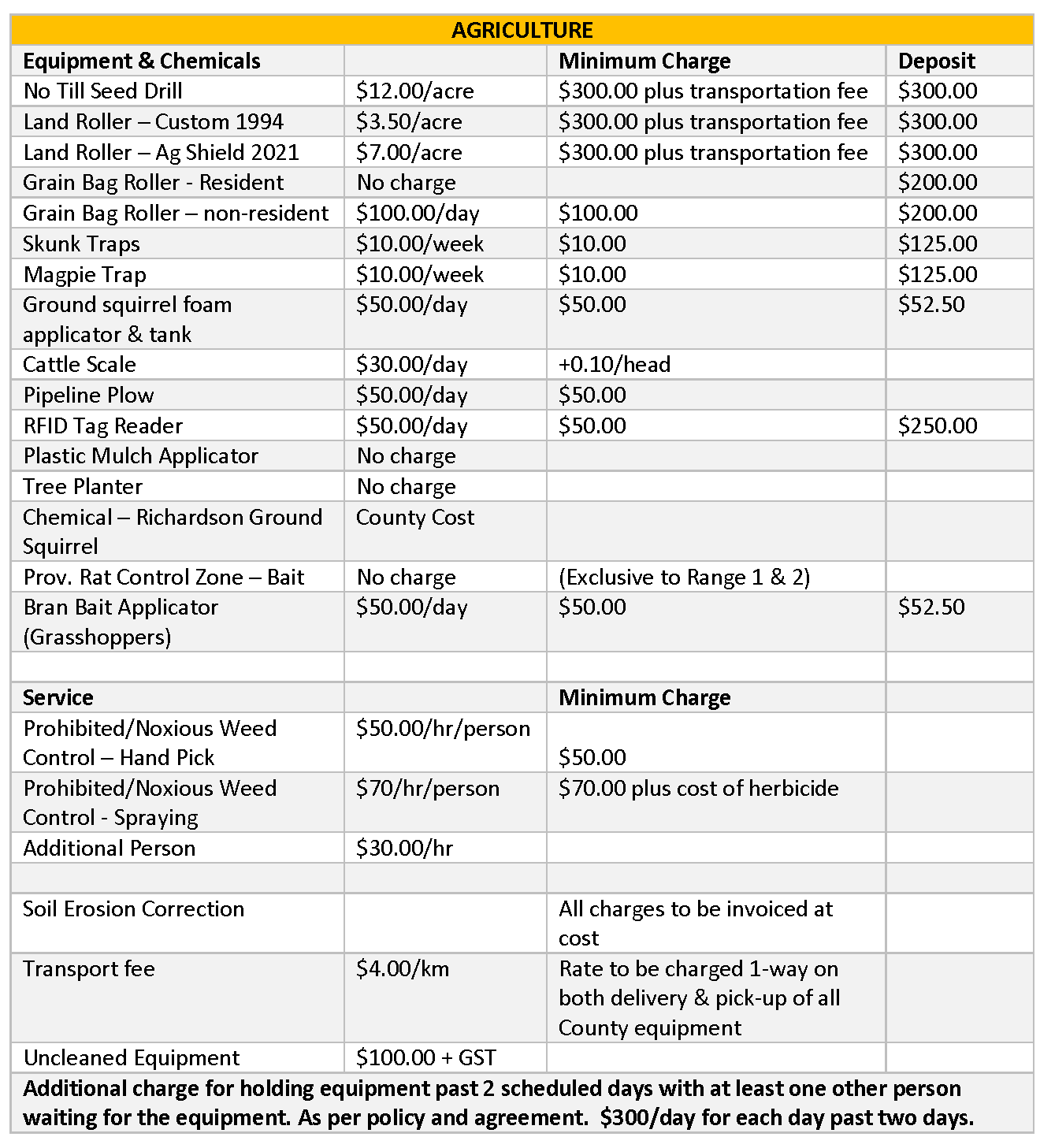
Roadside Spraying
Here is the area of spraying for 2026:
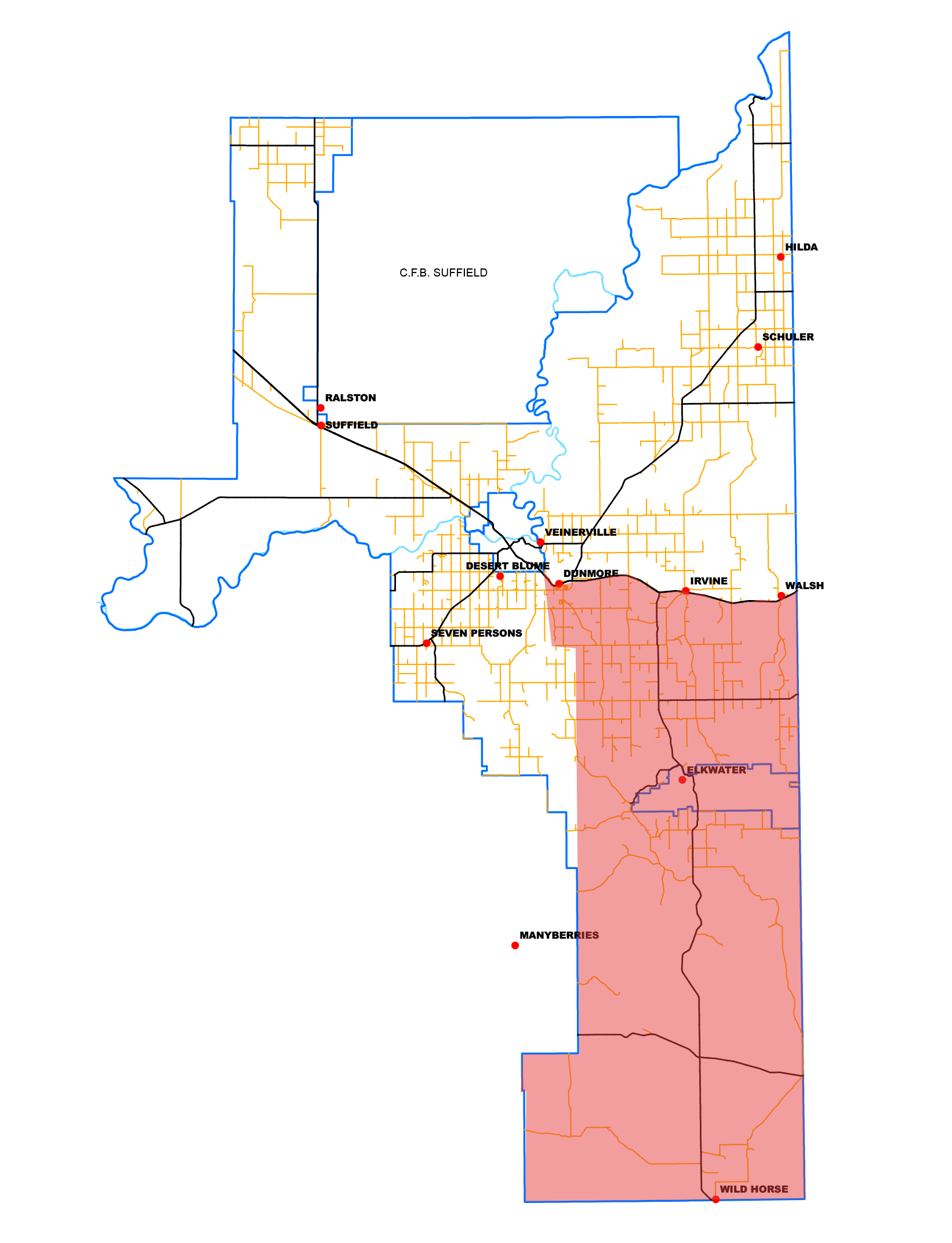
All herbicides and procedures comply with Federally approved labels and the Environmental Code of Practice.
Weed inspectors will be out monitoring provincially regulated weeds throughout the growing season.
Rural residents
If you have land that is certified organic or is in the process of becoming certified, you must inform the Agricultural Fieldman in writing every year.
If you do not want the County to control the weeds in the ditch adjacent to your property you must assume the responsibility of controlling the weeds and visibly post “Do Not Spray“ signs far enough in advance to allow spray operators to react.
If weed control is unsatisfactory the County will control the weeds using any appropriate method.
Please be aware that the County does not allow anyone to use any part of the road allowance as part of a pesticide free buffer zone.
If you have any questions, or need to inform the Agricultural Fieldman of your organic status please contact: Lisa Sulz, Agricultural Supervisor lisa.sulz@cypress.ab.ca 403-526-2888
Soil Conservation
The county has both a bylaw and a policy regarding soil erosion:
Municipalities in Southern Alberta partnered with Farming Smarter to produce a series of articles on soil conservation. The articles can also be found on the Farming Smarter website.